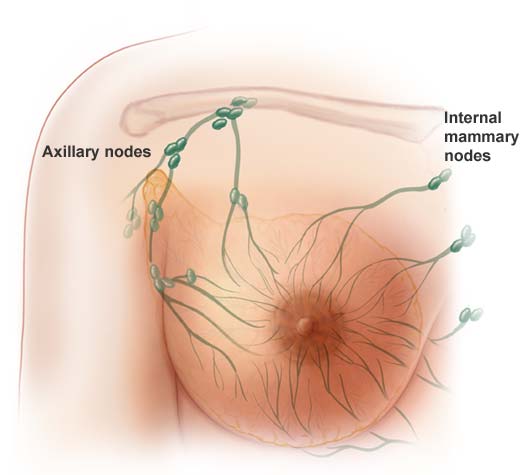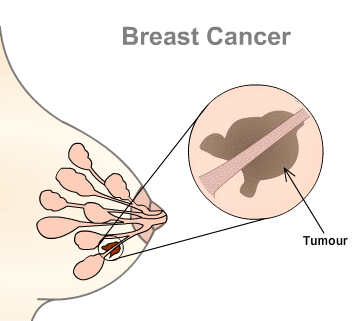Even if all the genetic and environmental factors are important to consider, is the overwhelming evidence that breast cancer is linked to lifestyle. The following paragraphs explain the negative effects and positive effects on breast cancer the most common problems related to lifestyle.
After menopause it will lead to increases the risk of obesity: Despite evidence of the protective effect of pre-menopausal obese pre-menopausal breast cancer, evidence that obesity increases the risk of post-menopausal breast cancer is very clear and not discussed. Some have suggested that tumors are more difficult to find with a medical examination and mammography in obese women. This theory has been largely disproved in studies of mammography sensitivity and specificity, as well as studies examining the diagnosis in obese patients.
If the link between obesity and mortality from cancer is completely causation Some researchers estimate that an overweight condition and / or obesity hours in May for an account for seven of cancer deaths in men and one in five women in the U.S.
High-fat Diet: Although breast cancer publications and media have promulgated the idea that a diet low in fat reduces the risk of cancer, most clinical studies have shown that successful direct benefit. There were several methodological explanations for this failure. But the observation that the reversal of a high fat diet increases the risk of breast cancer is still solid. For example, a large study funded by the National Institutes of Health studied 188,736 postmenopausal women, and fat, based on both food frequency questionnaires and 24-hour dietary recall questionnaire needs.
With food frequency questionnaires, the researchers found that women who have had 40% of their calories from fat by about 15% increased risk of developing breast cancer than women who have reached 20% of their calories from fat. With "24-hour dietary recall questionnaire needs," the 32% found an increased risk of breast cancer among women with high fat in the diet.
Alcohol: Based on scientific evidence that exposure to alcohol is associated with increased risk of breast cancer in a dose-dependent manner. Although less than one drink per day on a daily basis may be associated with up to a 30% increase in mortality from breast cancer in postmenopausal women compared with non-drinkers. The risk may be increased by 7% per drink per day. Studies have shown that the arrest of alcohol in May, reversing this risk.
Exercise: Exercise has been consistently associated with reduced risk of breast cancer. A system of approximately 30 minutes per day of moderate intensity should be sufficient, and perhaps one to two hours a week is enough to be useful. It seems that the longer time and greater intensity of activity can provide even more health benefits.
Appendix: Americans spend billions of dollars of vitamins and mineral supplements. Recent studies of size, however, have shown that these pills and capsules do not reduce the risk of many types of cancer. One explanation is that, until the absence of a specific vitamin or mineral, the intake of super-normal levels of Completion does not help.
Many women have low levels of vitamin D, and some data have shown that the increase in its level (either in a pill or by exposure to sunlight) may protect against some future breast cancer. We believe that food derived from botanical extracts of green tea represent a potentially widely available method to reduce the risk of breast cancer. Next to water, tea is the most consumed beverage in the world and its intake in reasonable doses are considered safe. Several reports on observations of the population have shown that green tea can reduce the risk of malignancy in the chest.
Relatade articles:
Labels: Breast cancer, Cancer, Cancer guidance
 breast cancer
breast cancer breast cancer pictures
breast cancer pictures





